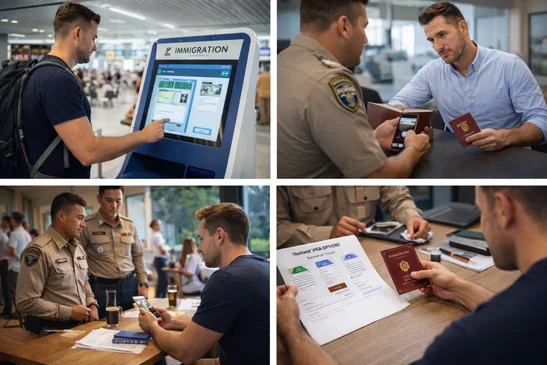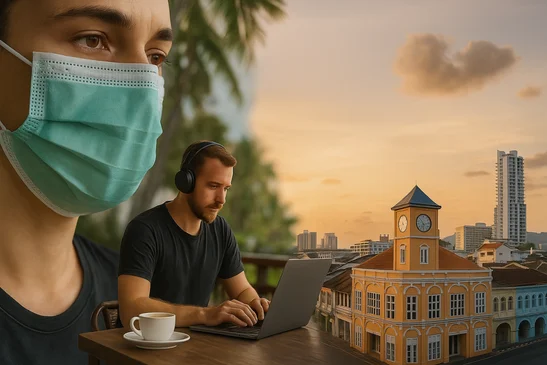The option to work remotely may have been around for a while for some but has since become a reality for many. With increased internet bandwidth, more advanced and connected software, and employers happy to eliminate office costs, many industries support their employees to work remotely. Additionally, the COVID-19 pandemic forced this shift and allowed industries to work out the kinks in real-time.
Nowadays there are hundreds, maybe even thousands, of expats living in Phuket and working remotely. While there can be challenges with this scenario, many are able to make it work allowing them to live their dream life on a tropical island.
Infrastructure

Image by freepik
One crucial piece of the puzzle that enabled would-be remote workers to be based out of Phuket is the relatively fast and reliable internet connection. Going back even more than a decade the island had globally competitive internet with many neighborhoods and homes equipped with optical lines and 5G early on. For many remote workers, the fast connection, high bandwidth, and reliable service are of paramount importance as they couldn't do their job without it.
Types of Remote Work

Image by freepik
Expat remote workers in Phuket represent a variety of industries. Teaching English (and other languages) privately or for foreign schools is common while others may make a living as content creators. Others work in the tech industry in various capacities such as IT, software engineering, app development, web design, or tech support. It's likely to also encounter expats working in e-commerce, stock or cryptocurrency trading, and other fin-tech positions.
Challenges

Image by jigsawstocker on Freepik
For those working for a company in the Western Hemisphere, the difference in time zones can pose difficulties. Working with a team or being required to be available during certain hours may mean having to work a nighttime schedule.
Another often significant hurdle remote-working expats must clear is Thailand's visa requirements. Depending on one’s specific situation there may be a variety of options. Recently, Thai immigration has begun offering the Destination Thailand Visa (DTV). The DTV provides a 5-year multiple entry visa with 180-day continuous stays. It's aimed specifically at remote workers as you can work legally, but not for a Thai company. You also have to prove that you work for a foreign company and maintain a Thai bank balance of at least THB 500,000. However, it's not a continuous long-term solution. There's also the Long-Term Resident Visa which may be the best option for those who qualify. The catch is that applicants must have made a minimum of US$80,000 per year for at least two years, have health insurance for the entire duration of their visa, work for a publicly traded company or one that generates >US$150 million, and more. Those who qualify get many benefits though including a 10-year visa.
It can also be difficult for some remote workers to maintain focus on their jobs. Especially for those just being initiated into that lifestyle, the freedom and distractions (of which there are many) can be overwhelming. Those who can find a healthy work-life balance and maintain focus can reap the rewards of life on a tropical island.
Phuket remote-working expats aren't on their own. Recent years have seen quite a few co-working facilities popping up. They often offer quiet spaces for phone calls, conference rooms, networking possibilities, and more.



















